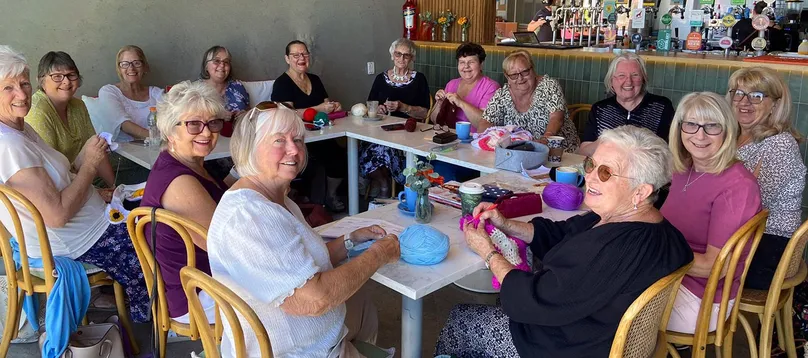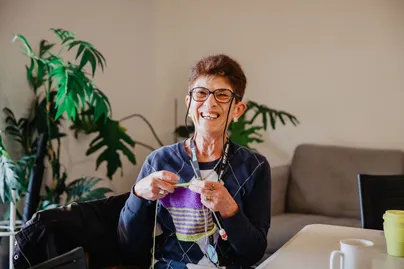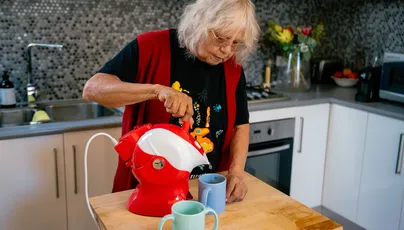Whether downsizing or 'rightsizing', here are some ways to make your move a better experience.
As you grow older, it's common to experience major life transitions, such as moving to a new home. This can be both positive and challenging. These changes can happen suddenly or may have been planned for a long time.
Regardless of the circumstances, it's natural to find it difficult to adjust in the weeks or months that follow. Even when transitions are exciting, they can disrupt our daily routine and feel stressful and overwhelming.
Here are some tips to make your life easier when downsizing or 'rightsizing'.
Downsizing
Downsizing generally means moving to a smaller home.
Why would you downsize?
People might downsize because they want a better lifestyle and less property maintenance.
Downsizing may also provide financial benefits.
Rightsizing
Rightsizing is similar to downsizing but means moving to a home that better suits your specific needs.
Rightsizing is generally considered when you experience a shift in your needs. This might be due to health concerns, mobility issues, or changes in lifestyle.
Why would you rightsize?
This decision might be because you:
- Need a more accessible living environment (e.g., moving to a single-story home or a home with fewer stairs)
- Want to reduce maintenance responsibilities (e.g., garden care or house upkeep)
- Have had a change in household (e.g., fewer family members in the household)
- Have financial considerations, such as freeing up equity or reducing household costs
- Want to live in a community that provides better access to healthcare, transportation, or social support
Video: How Sharon created a community after downsizing

Sharon, founder of Shorehaven Yarners, shares her downsizing journey and how she built a new social network.
Ways to make moving easier
Moving to a new place can be a daunting, emotional experience.
If you're feeling overwhelmed, here are some ways to make the process smoother:
- Prepare yourself mentally by breaking down tasks into small steps and reward yourself along the way.
- Get rid of excess clutter. Decluttering your home can make it easier to pack up all the boxes and move when the time comes.
- Keep what matters most. Surrounding yourself with familiar treasured items, like photo albums, may bring you comfort. This could also provide opportunities to laugh and ease the tension.
- Be mindful of your emotions. It's normal to feel anxious or fearful about the move. Acknowledge these feelings and take steps to reduce stress.
- Get 7-9 hours of sleep. Getting enough sleep is important during this time of change. Prioritise any need for rest and relaxation, while staying active. Here are 10 tips for good sleep hygiene.
- Don't be afraid to ask for help. You may get help from friends and family, or from assistive products (like a tray walker for collecting and moving items) that help make the move easier.
- Stay connected with loved ones. Keep in touch with family and friends during this process to help ease the transition.
- Embrace the opportunity to create new memories in your new home and look forward to the exciting changes ahead.
Things to keep in mind
Moving can be a stressful experience, but keeping the end goal in mind can make it easier.
Remember that the benefits of moving, such as being closer to loved ones or having a more manageable home, will make it all worth it.
Here are some things to consider before you move:
- Start early and take it slow. Begin by clearing out one room at a time, starting with the areas you use the least.
- When looking for a new home, prioritise safety. Look for features like easy-to-navigate walkways, few or no stairs, and handrails in the bathroom. Consider future-proofing your home to make sure it will be safe and accessible for many years to come.
- Learn to let things go. Focus on bringing only the items you truly need and love. Give away or donate items you no longer use or need. Consider passing down family heirlooms sooner rather than later. Giving things away can be a win-win. Not only will it help others, but it will also lighten your load, both physically and mentally.
- Building a social network is crucial to good physical, mental, and cognitive health. Investigate the new area you'll be moving to and look for social activities that cater to your interests to help you make new friends.
By keeping these tips in mind, you can reduce the stress of the moving process and smoothly transition to enjoying life in your new home.
If you need more information about healthy ageing, get in touch with one of our helpful team on 1800 951 971.
References
Vassiliadis, K. (2016, January 4). Social networks as important as exercise and diet across the span of our lives. The University of North Carolina at Chapel Hill - Health and Medicine News. https://www.frontiersin.org/journals/psychology/articles/10.3389/fpsyg.2021.717164/full
National Institute on Aging. (2024). Loneliness and social isolation — Tips for staying connected. https://www.nia.nih.gov/health/loneliness-and-social-isolation/loneliness-and-social-isolation-tips-staying-connected
James, A., Rowley, S., & Stone, W. (2020). Effective downsizing options for older Australians (AHURI Final Report No. 325). Australian Housing and Urban Research Institute Limited. https://www.ahuri.edu.au/research/final-reports/325
How to use this information
LiveUp provides free information to help you make informed decisions about your health. This information is for general and educational purposes only, is not intended to provide a comprehensive guide, and does not replace medical advice. Everyone is different, so some of these tips may work better for you than others. You should use your own judgment and seek medical advice when applying this information to yourself, to determine if it is suitable in your circumstances. Your use of, or reliance on, this information is solely at your own risk. Independent Living Assessment Incorporated is not responsible or liable for any injury, loss, or damage caused as a result of your use of, or reliance on, this information.
Download and print this article:
You can print out the PDF and stick it to your fridge or file away the tips to revisit at a later time.

Read more Mental health articles
Did you enjoy this article? You may also like reading similar healthy ageing articles.
See all Mental health articles

